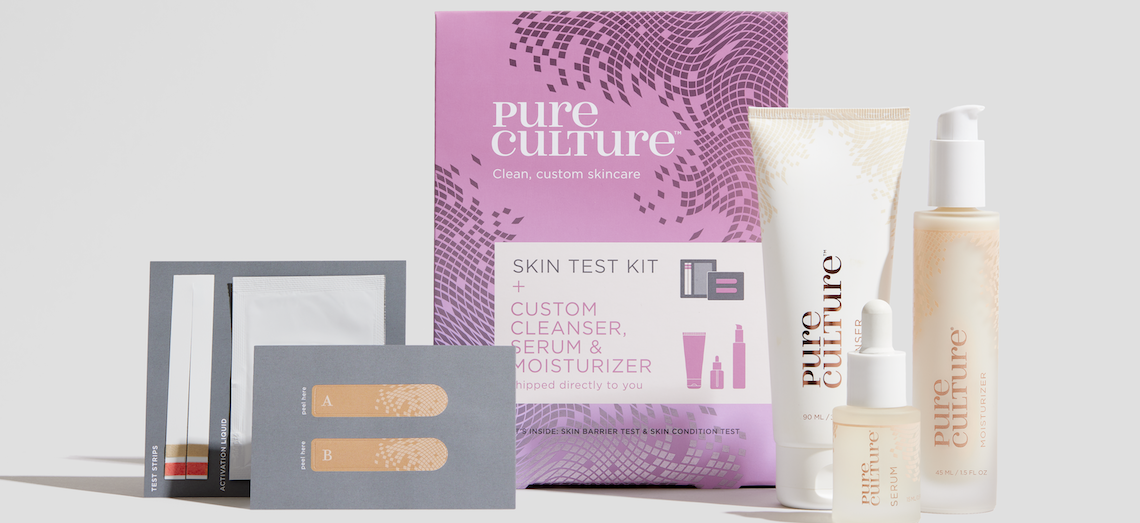Once limited to the DTC world, bespoke beauty is pushing its way further into retail.
This month, CVS became the latest retailer to venture into the custom beauty category with the launch of Pure Culture Beauty, a 2-year-old skin-care brand that whips up personalized formulations for customers based on the results of an at-home skin test. Debuted at approximately 200 CVS stores on November 23 and online on November 25, Pure Culture is offering its made-for-retail test kits that can be purchased in-store and redeemed on the brand’s website for its skin-care products. The launch is the latest example of a wave of customized beauty brands expanding from DTC to wholesale.
“We’ve always thought retail would be part of our strategy,” said Joy Chen, co-founder of Pure Culture Beauty.”With cost of acquisition being as expensive as it is currently, retail will continue to be a viable strategy for acquiring new customers.”
The brand is offering three SKUs at CVS, which are kits redeemable for either a set that includes a cleanser, a serum and a moisturizer ($59.99; $35.99 limited-time CVS promo price); a serum and moisturizer alone ($49.99; $29.99 promo price); or just the serum ($29.99; $17.99 promo price). The test kit includes pH test strips and an oiliness detection sheet that are held against the face to measure skin conditions. When users enter the results online, they are also provided with a 14-question lifestyle quiz on topics including sun exposure, sleep and geographic region. Personalized formulas are sent within 10 business days of the test results being submitted online.
The launch is an extension of Pure Culture Beauty’s made-for-retail format created earlier this year for its Target launch in the U.S. and Hudson’s Bay launch in Canada. CVS is the latest retailer to get on board with the category after Target, which sells customizable Function of Beauty hair care and Care/Of supplements.
According to Chen, Pure Culture Beauty’s sales channels are now evenly split between wholesale and DTC. In her view, the DTC era that previously defined custom beauty brands is now over; there’s now a need for DTC brands to make their way into retail due to increased customer acquisition costs.
“Over time, even the best DTC brands eventually make their way into retail,” said Chen. For example, Glossier finally entered physical retail this year, launching at Sephora after unloading inventory at TJ Maxx.
Ad position: web_incontent_pos1
The launch comes in time for the holiday season, and Chen is betting on personalization to make skin care a more giftable item in the North American market.
“I never bought skin care for any friend in the past for holiday, because it’s not one of those things you buy,” said Chen. She said that retailers are generally “a little bit more skittish when it comes to offering skin-care holiday kits,” with active skin-care ingredients generally serving as a confusing challenge for gift buyers.
Skin care is promising this holiday season. In a recent survey by Klarna, it was the second-most-popular beauty category on respondents’ holiday wish lists, after massages.
Entry into retailers like CVS and Target has meant a need to educate consumers about the custom format. Pure Culture Beauty has invested in in-store signage explaining how the test-kit system works.
“There’s a range of customers that want a certain level of personalization. Over time, we’re going to see more demand for more specialized personalization,” said Chen.




